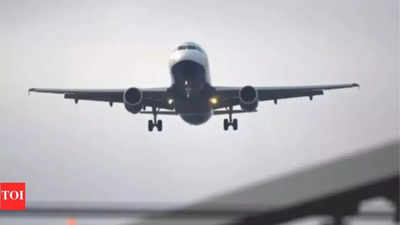- News
- World News
- US News
- What happens to the citizenship of babies born mid-flight
Trending
What happens to the citizenship of babies born mid-flight
Infants born mid-flight face unique citizenship challenges, as their nationality depends on the airline's country of registration and their parents' nationality. A 1961 international agreement suggests giving the baby the airline's nationality. Such births are rare, often used for promotions by airlines. For instance, Davy Owen's son, born on a flight to London, belongs to this unique group.
Infants who are born mid-flight tend to have special issues with regard to their citizenship. The law depends on the nation that the airplane is registered to, and also the parents' nationalities. Some nations automatically give citizenship to whoever is born within their territory, but others have different rules, like the nation of the airline or the parents' nationality. It makes it a confusing legal issue for families. With air travel traversing borders, it is important for parents in such a situation to know how these citizenship regulations work. The case is quite intriguing on how countries treat children born in the air.
The rules behind determining citizenship for babies born on planes
When a baby is born on an airplane, determining their citizenship can be complicated, as there is no single universal rule. In general, the country where the airplane is registered is regarded as the child's place of birth, meaning the child may inherit the nationality of that country. However, many countries primarily grant citizenship based on the parents’ nationality, not the location of the birth. To address these complexities, a 1961 international agreement was established, suggesting that a child born in the air may be granted citizenship from the country of the airline. In the U.S., the State Department has a unique approach: if the baby is born in international airspace, they are considered an "air baby." While such occurrences are rare, airlines sometimes use them for promotional purposes, offering benefits like free flights or special gifts to the newborn.
How one baby became part of the skyborn legacy during a flight
End of Article
FOLLOW US ON SOCIAL MEDIA











